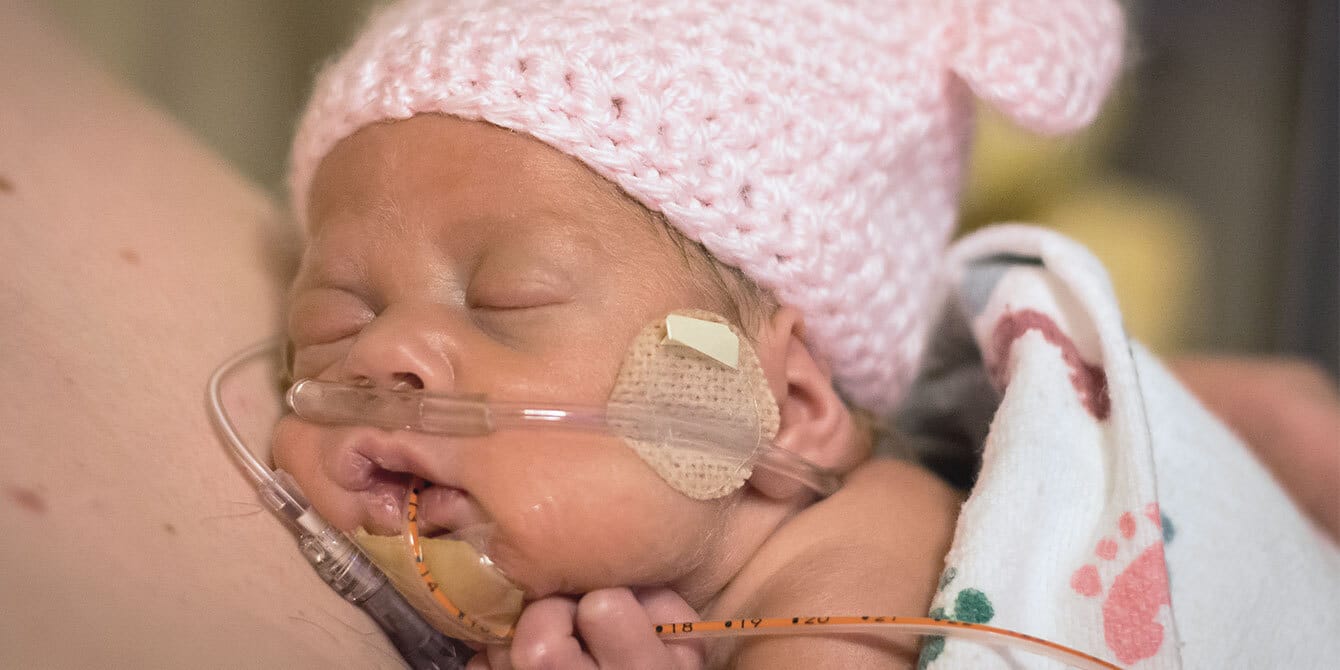WHO now recommends all premature babies receive immediate skin-to-skin contact after birth
WHO research shows starting skin-to-skin contact immediately after birth has the potential to save up to 150,000 more lives each year.

Jason Mark M/Shutterstock
In an announcement released Tuesday, the WHO issued new guidelines around skin-to-skin contact for premature babies, also called kangaroo mother care. In an effort to improve health outcomes for all premature infants, the guidelines advise that skin-to-skin contact with a caregiver should start immediately after birth, without an initial period in an incubator.
“This marks a significant change from earlier guidance and common clinical practice, reflecting the immense health benefits of ensuring caregivers and their preterm babies can stay close, without being separated, after birth,” states the organization in a press release. This is the first time the guidelines have been updated since 2015.
Skin-to-skin contact after birth is already considered standard practice by many medical organizations, including AAP, but typically applies to full-term infants only. For babies born prematurely, some may be whisked away for assessment before skin-to-skin bonding can happen—meaning many mother-baby dyads miss out on essential bonding during the period known as ‘the golden hour’ after birth. The new WHO guidance applies to all babies born before 37 weeks or weighing less than 5.5 pounds, except for those who need breathing support, mechanical ventilation or are in shock. The goal is to keep the birthing parent and baby together to promote bonding and improve outcomes.
The organization’s research has shown starting skin-to-skin contact and encouraging breastfeeding immediately, rather than waiting until babies are stable, could save nearly 150,000 lives a year.
“Preterm babies can survive, thrive and change the world—but each baby must be given that chance,” said Dr. Tedros Adhanom Ghebreyesus, WHO Director-General, in a press release. “These guidelines show that improving outcomes for these tiny babies is not always about providing the most high-tech solutions, but rather ensuring access to essential healthcare that is centered around the needs of families.”
The updated guidelines also advocate for parental leave to provide increased emotional and financial support for parents and caregivers, as well as government policies to ensure families of preterm infants receive financial and workplace support.
What is kangaroo mother care?
Kangaroo mother care is a method of care in which your naked or diaper-clad infant rests tummy-down on your bare chest, so you’re skin-to-skin. A blanket is usually placed over the baby’s back to keep them warm.
The WHO now recommends starting skin-to-skin care immediately after birth, even for preterm infants. In a NICU setting, kangaroo mother care can be repeated, even if your infant is receiving NICU support. Doing kangaroo care for at least 1 hour is best, recommends March of Dimes, but even short sessions are beneficial.
How skin-to-skin contact benefits babies
Skin-to-skin contact or kangaroo care after birth can help your baby:
- Stay warm and regulate their body temperature
- Regulate their heartbeat and breathing
- Spend more time in deep sleep
- Spend less time crying when awake
- Have greater success with breastfeeding
If you missed the opportunity for skin-to-skin with your infant after birth, know that the bonding benefits of starting skin-to-skin later are still powerful. It’s not too late to try!
How skin-to-skin contact benefits mothers
But the benefits aren’t just for your little one. Skin-to-skin contact can help you, too, by increasing the hormone oxytocin, which can support the following:
- Supporting milk supply
- Encouraging bonding, which can help build your parenting confidence
- Reducing stress
Prioritizing bonding via skin-to-skin contact in the golden hour after birth can carry big benefits for both babies and birthing parents. “These new guidelines stress the need to provide care for families and preterm babies together as a unit, and ensure parents get the best possible support through what is often a uniquely stressful and anxious time,” stated Dr. Karen Edmond, Medical Officer for Newborn Health at WHO.